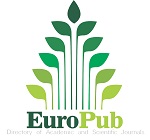اقبال اور ہیگل کا تصور حقیقت مطلق
Abstract
This comparative study delves into the philosophical convergences and divergences between Muhammad Iqbal and G.W.F. Hegel regarding their conceptualizations of the Absolute Reality or God. Both thinkers, though originating from vastly different religious, socio-cultural and intellectual backgrounds, grapple with the essence and characteristics of ultimate reality and the human experience of the divine in such a fashion that they come close to each other to some extent. Hegel’s Absolute Reality is rooted in his well-known dialectical process where the Absolute is realized through a synthesis of thesis and antithesis, culminating in a rational understanding of the whole. In contrast, Iqbal's vision is deeply influenced by Islamic theology, mysticism and emphasizes an intuitive, experiential understanding of the divine, which to some extent transcends rational categories. This article study investigates how Iqbal appropriates and reinterprets some Hegelian ideas within an Islamic framework, emphasizing the interplay between reason and intuition, and the individual’s dynamic and living relationship with the Absolute. Through this analysis, the article sheds light on the broader implications for intercultural philosophical dialogue and the philosophical quest for understanding Absolute Reality.








